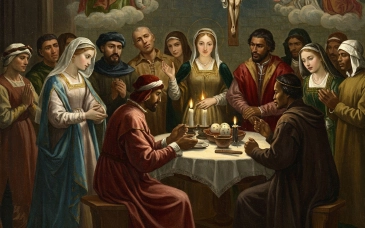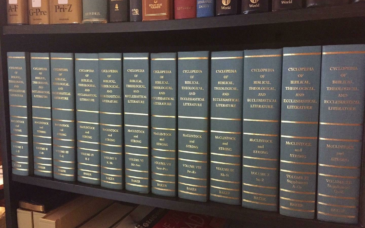A creed is a statement of belief or set of beliefs that is considered to be true by a particular religious or philosophical group. Creeds are often used as a way to define and distinguish one group from another, and they are often used as a tool for religious instruction and worship.
One of the most well-known creeds is the Nicene Creed, which is widely used in Christianity. This creed was formulated in the 4th century CE and affirmed the belief in the Trinity, the divinity of Jesus, and the Holy Spirit. The Apostle's Creed is also widely used in Christianity, which is believed to have originated in the 2nd century CE, it states the basic beliefs in the Holy Trinity, the resurrection of Jesus, and the belief in eternal life.
Another important creed is the Shahada, which is the declaration of faith in Islam. It states that "there is no god but God, and Muhammad is the messenger of God." This creed is considered to be the most fundamental belief in Islam and is recited by Muslims as part of their daily prayers.
In Judaism, the Shema is considered to be the most important creed. It states, "Hear, O Israel: The Lord our God, the Lord is one." This creed affirms the belief in one God and is recited daily by observant Jews.
In Buddhism, the Four Noble Truths and the Eightfold Path are considered to be the fundamental creeds. These creeds outline the basic beliefs and practices of Buddhism, including the belief in the nature of suffering, the cause of suffering, and the path to the end of suffering.
Creeds also play an important role in the liturgy of many religious traditions. They are often recited during religious services and are used as a way to bring a community of believers together in a shared belief.
In conclusion, creeds are an important aspect of many religious and philosophical traditions. They are used as a tool for religious instruction and worship, and they serve as a way to define and distinguish one group from another. The most well-known creeds include the Nicene Creed, the Apostle's Creed, the Shahada, the Shema, Four Noble Truths, and the Eightfold Path which are fundamental beliefs of Christianity, Islam, Judaism, and Buddhism respectively.
- Creeds from the Bible (Statements of Faith)
- The Apostles' Creed: with notes by James E. Kiefer.
- Nicene Creed (325 AD): with notes by James E. Kiefer.
- Notes on the Filioque Clause Controversy
- The Church in the Nicene Creed
- The Definition of Chalcedon (451 AD)
- The Athanasian Creed (c 500 AD)
- Canons of the Council of Orange (529 AD)
- Anathemas of the 2nd Council of Constantinople (533 AD)
- Creeds and Statements from the period after 600 AD
Statement from the 3rd Council of Constantinople (681 AD)
Statement from the Synod of Constantinople (753 AD)
Confession from the Council of Nicea (787 AD) - Luther's 95 Theses
- The Augsburg Confession (1530)
- The Scottish Confession of Faith (1560)
- The Belgic Confession of Faith (1561)
- The Heidelberg Catechism (1563)
- The Second Helvetic Confession (1566)
- The Thirty-nine Articles of Religion (Anglican 1571)
- The Canons of the Synod of Dort (1618-1619)
- London Baptist Confession of 1644
- Westminster Confession of Faith (1646—HTML edition)
- Westminster Shorter Catechism
- Westminster Larger Catechism
- Keach's Catechism of 1677
- The Baptist Confession of 1689 (original version with Scripture proofs)
- The Philadelphia Confession, 1742
- Carter Lane Declaration (John Gill's Confession), 1757
- The Baptist Confession of 1689 (Spurgeon's edition)
- The New Hampshire Baptist Confession, 1833
- Spurgeon's Catechism of 1855
- Baptist Faith and Message (1963)
- Abstract of Principles (Baptist)
- Chicago Statement on Biblical Inerrancy








